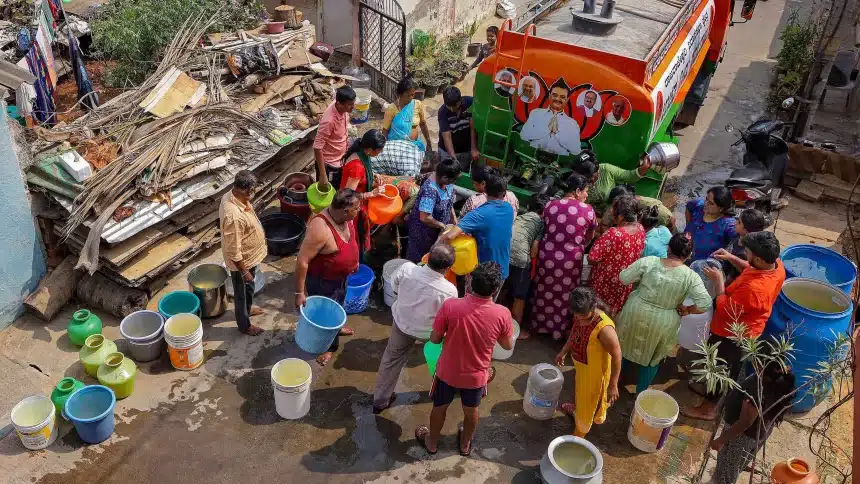Bangalore, once known for its lush greenery and abundant water bodies, is now facing a severe water crisis. The city’s rapid growth has outpaced its ability to manage water resources, leading to scarcity and pollution of its water sources. However, amidst this crisis, there is a glimmer of hope—data-driven solutions that could potentially alleviate Bangalore’s water crisis.
What is the cause of Bangalore’s water crisis?
The water crisis in Bangalore is a complex issue with several underlying causes, each contributing to the current state of water scarcity and pollution. One of the primary causes is the rapid population growth in the city. Bangalore’s population is expected to reach 20.3 million by 2031, further exacerbating the gap between water supply and demand. This population growth has led to increased pressure on the city’s water resources, particularly the Cauvery River. This is the primary source of water for the city.
Unplanned urbanization is another significant cause of the water crisis in Bangalore. The city has witnessed rapid and haphazard growth, leading to the destruction of water bodies and natural reservoirs. The loss of these water bodies has reduced the city’s ability to capture and store rainwater, further aggravating the water scarcity problem.
In addition to unplanned urbanization, industrial and agricultural practices have also contributed to the water crisis. Unregulated industrial activities and inefficient agricultural practices have led to pollution of water bodies and excessive groundwater extraction, further depleting the city’s water resources.
- Advertisement -
The lack of effective water management and governance is another key factor contributing to the water crisis in Bangalore. The Bangalore Water Supply and Sewerage Board (BWSSB), which is responsible for supplying water to the city, has struggled to cope with the growing demand for water. The BWSSB’s reliance on the Cauvery River as the primary source of water has made the city vulnerable to fluctuations in rainfall and river flow.
Possible solutions for Bangalore’s water crisis
To address the water crisis, the BWSSB and the Karnataka government have proposed various measures. Including the use of water tankers from neighboring towns, drilling borewells, and implementing water conservation measures. It needs to be observed, though, if these safety measures are beneficial. Previous efforts to address the water crisis have had limited success.
One such solution is rainwater harvesting. It has the potential to significantly reduce the city’s freshwater needs. Gathering and conserving rainwater for future use is known as rainwater harvesting. Reducing the reliance on traditional water sources such as rivers and groundwater. While rainwater harvesting can make a dent in Bangalore’s water crisis. It is not enough on its own to meet the city’s growing water demand.
A more impactful solution lies in the reuse of wastewater. Wastewater, often overlooked and considered a nuisance, can actually be a valuable resource. By treating and reusing wastewater, Bangalore can reduce its dependence on freshwater sources and alleviate the pressure on its water bodies. Wastewater treatment plants can purify wastewater to a level where they can safely use it for non-potable purposes such as irrigation, industrial processes, and even toilet flushing.
Data plays a crucial role in implementing these solutions effectively. By collecting and analyzing data on water usage, supply, and demand, city planners can identify areas where rainwater harvesting and wastewater reuse can be most beneficial. This data-driven approach can help optimize the allocation of resources and ensure that water is used efficiently.
In addition to rainwater harvesting and wastewater reuse, other measures such as water conservation and groundwater recharge can also play a significant role in addressing Bangalore’s water crisis. By adopting a holistic approach that integrates data-driven solutions with traditional water management practices, Bangalore can work towards a sustainable water future.


